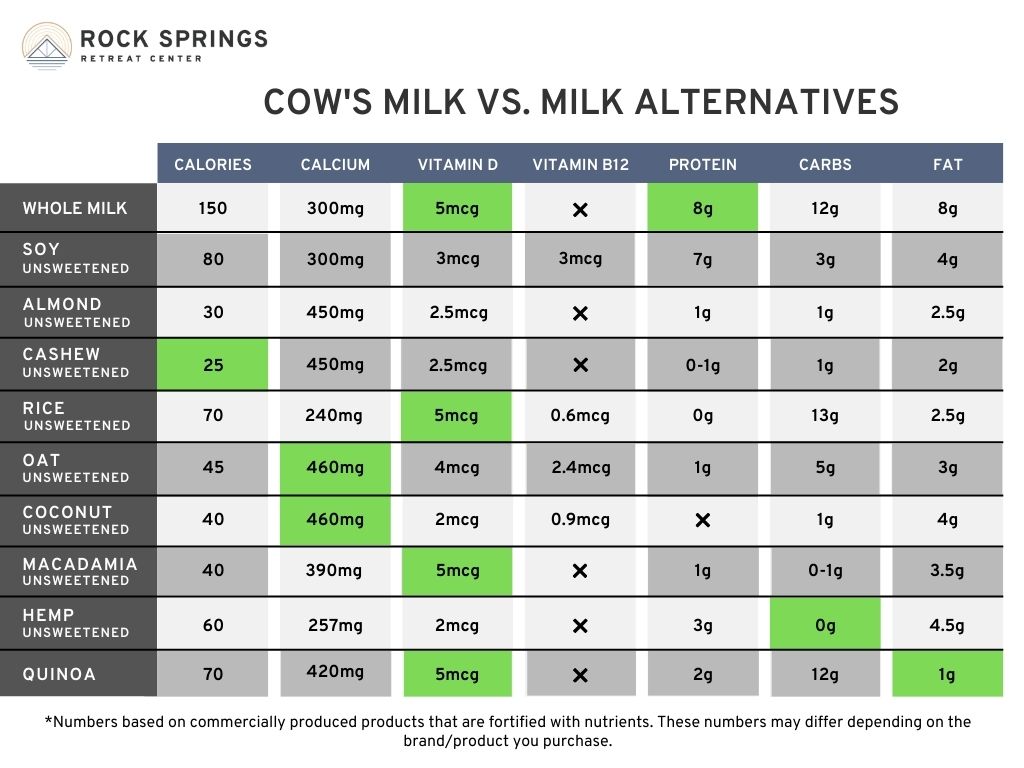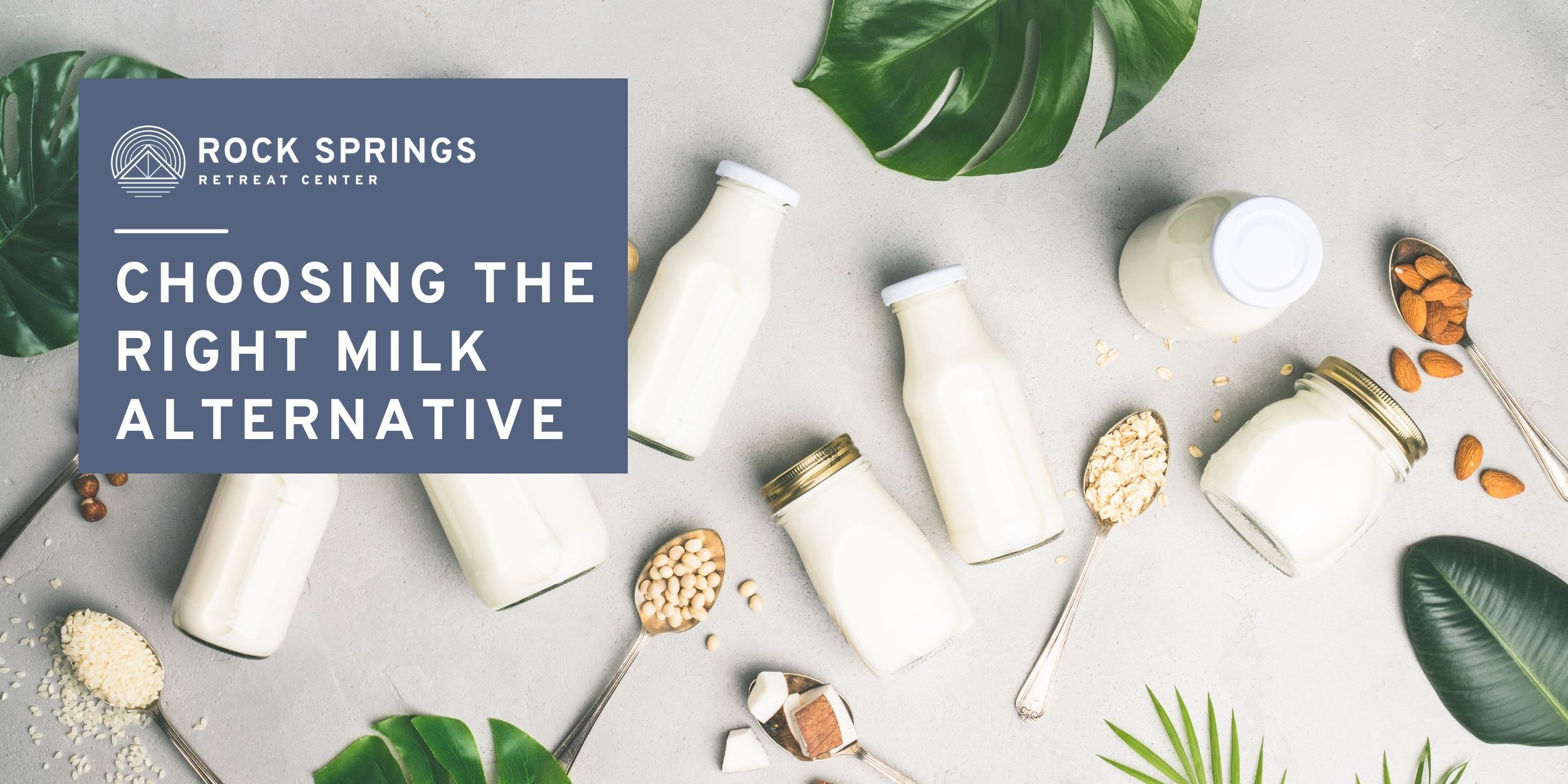
While cow’s milk may be a normal part of some individuals’ diet, you may be surprised to find out that the majority of the world doesn’t consume it. Whether it’s because of allergies, dietary restrictions or preferences, or ethical views, milk alternatives have become increasingly popular in the last decade. As we ease into the start of the new year and you begin to lay out your nutritional plan, you may want to consider if a milk alternative is right for you. Simply switching your primary milk to a dairy-free version can help with improving your gut health, reducing daily calories, and increasing your protein intake. There are so many ways you can incorporate the change without even noticing the difference, particularly in recipes as an ingredient. So, if you enjoy drinking a glass of cow’s milk, continue to do so, and try one of these dairy-free alternatives in other less obvious options like in your cereal, creamer, or other recipes.
We’ve put together a guide below to help you decide which milk alternative falls in line with your personal goals. The following table compares micro and macronutrients and calories for cow’s whole milk and various milk alternatives. The areas highlighted in green show the optimal number of nutrients in each category. The items in this chart are based on commercially produced products that are typically fortified with nutrients.
For the purpose of this article, we are going to be using pre-selected commercially produced products to help you find the right milk depending on your goals, nutritional plan, and dietary restrictions. This is not because we endorse that particular brand, but because of the availability of the brand nationwide. Keep in mind when you’re shopping for a milk alternative that depending on the brand, the nutrients could be significantly different.
We’ve broken down nine, vegan-friendly milk alternatives to see how they hold up against cow’s whole milk to help you on your alternative milk journey!
Unsweetened Soy Milk
If you don’t have a soy allergy, unsweetened soy milk is an excellent alternative to whole milk. It has closely similar nutrients at almost half the calories, fat, and carbs. If the taste is too bland for you there is also an Organic Unsweet Vanilla Soymilk option available. It’s not as nutritious as the original version, but it’s close enough to not rule it out.
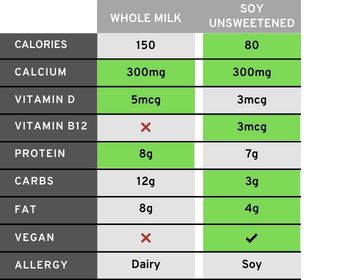
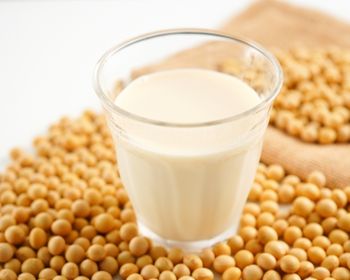
Pros: Vegan-friendly, highest protein out of alternatives listed, alternative flavors that are close in nutrients
Cons: Not for those with soy allergies, calories are higher than other alternatives
Unsweetened Almond Milk
If you’re trying to keep your calorie count down, almond milk is an excellent choice and it’s actually what we serve here on the farm. It pairs well with nutrition plans that are well-balanced and its sweet, nutty flavor makes it a palatable choice. Almond milk is also great for those with diabetes.
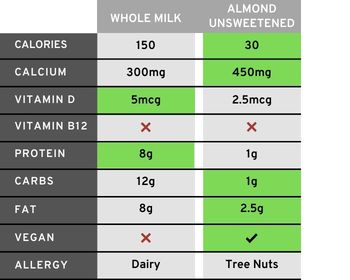
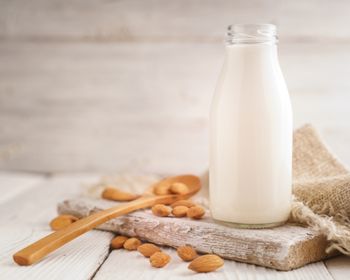
Pros: Vegan-friendly, low in calories, fat, and carbs
Cons: Not for those with tree nut allergies, low in protein
Unsweetened Cashew Milk
Cashew milk is a comparable option to almond milk based on your taste preference. Its creamy texture is great for thickening smoothies.
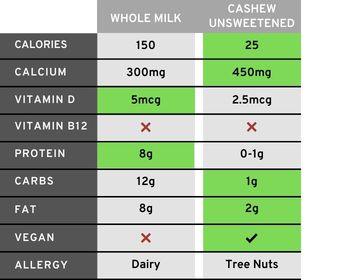
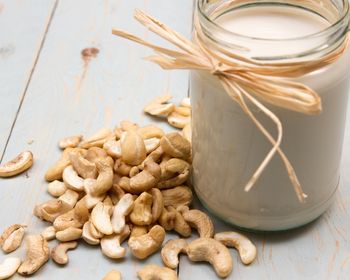
Pros: Vegan-friendly, low in calories, fat, and carbs
Cons: Not for those with tree nut allergies, low in protein
Enriched Unsweetened Rice Milk
We chose to go with enriched rice milk for this comparison since the original rice milk blend lacked nutrients compared to other available options. The key takeaway from rice milk is that it’s a popular option for those who suffer from allergies because it is least likely to cause a reaction.
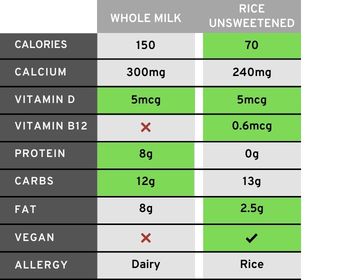
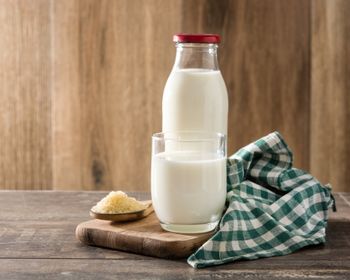
Pros: Vegan-friendly, least likely to have an allergic reaction compared to other milk alternatives
Cons: High in calories and carbs, not as nutrient-rich compared to alternatives, original rice milk has even fewer nutrients and higher calories and carbs, not gluten-free
Unsweetened Oat Milk
Oat milk is high in calcium and Vitamin D and has relatively low calories per cup. Studies have shown that oat milk helps reduce cholesterol and lower blood sugar. This particular product happens to be gluten-free, but make sure that you check the label of the product you are purchasing as not all oat milk produced is gluten-free.
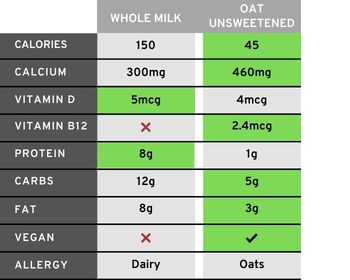
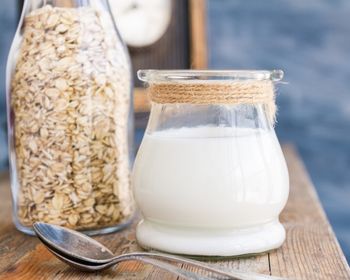
Pros: Vegan-friendly, high in calcium and Vitamin D, low calories
Cons: Low in protein, avoid if you are allergic to oats
Unsweetened Coconut Milk
Coconut milk has less than a third of whole milk’s calories while being packed with more calcium and Vitamin B12. A big downside to coconut milk is the lack of protein, however. Another thing to consider is if you have IBS, a FODMAP intolerance, or are on a FODMAP diet, you’ll want to avoid this milk. If you’ve never heard of FODMAP and are unsure if it applies to you, John Hopkins Medicine has an excellent in-depth article.
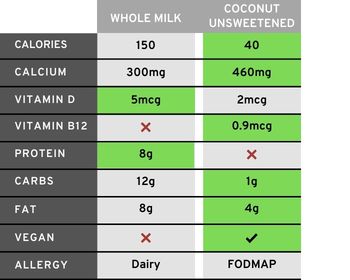
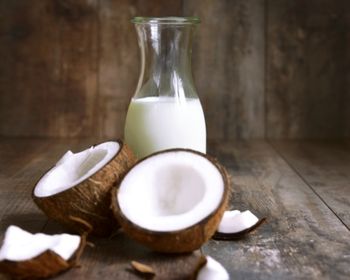
Pros: Vegan-friendly, high in calcium and Vitamin D, low calories
Cons: No protein, avoid if you have a FODMAP intolerance
Unsweetened Macadamia Milk
If you’re looking to keep your calories relatively low, macadamia milk is a decent choice, especially since it’s high in calcium and Vitamin D. Its low carb count also makes it a good choice for those with diabetes. Keep in mind that this milk is relatively new, so it may be more difficult to find than other alternatives.
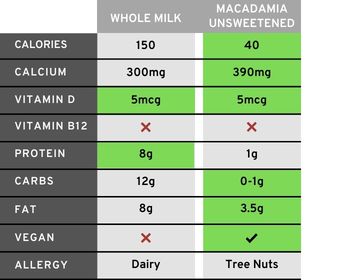
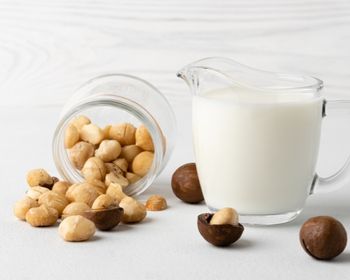
Pros: Vegan-friendly, high in calcium and Vitamin D, low calories and carbs
Cons: Low in protein, avoid if you have a tree nut allergy
Unsweetened Hemp Milk
If you’re looking for milk packed with excellent nutrients including omega-3-6 fatty acids and 11 essential amino acids, hemp milk has you covered. Although its calorie and fat count is higher, this milk will give a boost to your immune system. If you’re worried about consuming this milk because the hemp seeds are from cannabis, rest assured that it won’t cause you to get high. Typically, there is no THC in hemp milk, however, you should always read the label of the product. Similar to rice milk, hemp milk is a great alternative if you have soy or tree nut allergies.
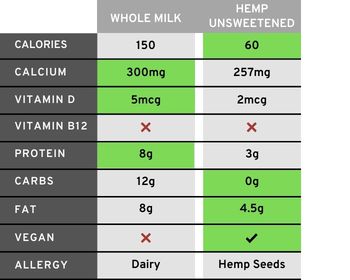
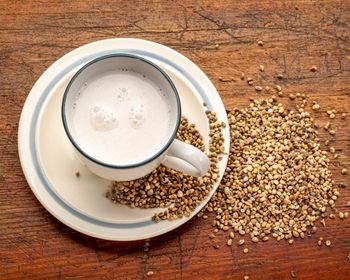
Pros: Vegan-friendly, high in protein and low in carbs, great for diabetics and those with several allergies
Cons: Higher in calories and fat compared to other milk
Unsweetened Quinoa Milk
Quinoa milk is another relatively new milk alternative to hit the market. Because quinoa is packed with nutrients, it’s popular among vegans and vegetarians as a source of protein, vitamins, and minerals. It’s also great if you suffer from multiple allergies that prevent you from enjoying other milk alternatives. If you are unaware if you are allergic to quinoa or not, one thing to consider is saponin is in its coating. If you are allergic to saponin and can’t consume legumes, chickpeas, and so forth, you’ll want to avoid this milk as well.

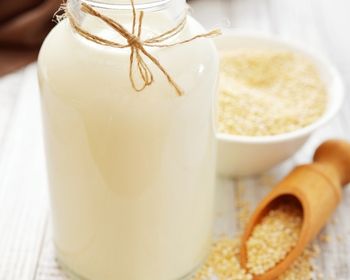
Pros: Vegan-friendly, high in protein
Cons: Harder to find for purchase, has a distinct quinoa flavor
We hope you found this article helpful and enlightening in your milk alternative search. If you’re looking to make any of these milks at home, just keep in mind that the number of nutrients would be lower because these commercial products are nutrient-fortified. This doesn’t mean you shouldn’t make your own milk at home. In fact, you may find that making these at home is more enjoyable since you can customize the ingredients to your liking and add any additional nutrients. Chef Mike from the Fit Farm kitchen has shared with us his Homemade Almond Milk recipe that you can easily make at home! If you have almonds in the cupboard, go ahead and give it a try. It’s a great way to ease into making your own milk. If you’ve found your alternative or already make your own homemade dairy-free milk, we’d love to hear which one you use and why in the comments below!
Tackle the new year headstrong with more great topics on fitness, weight loss, nutrition, and wellness sent straight to your inbox by subscribing to our newsletter!

